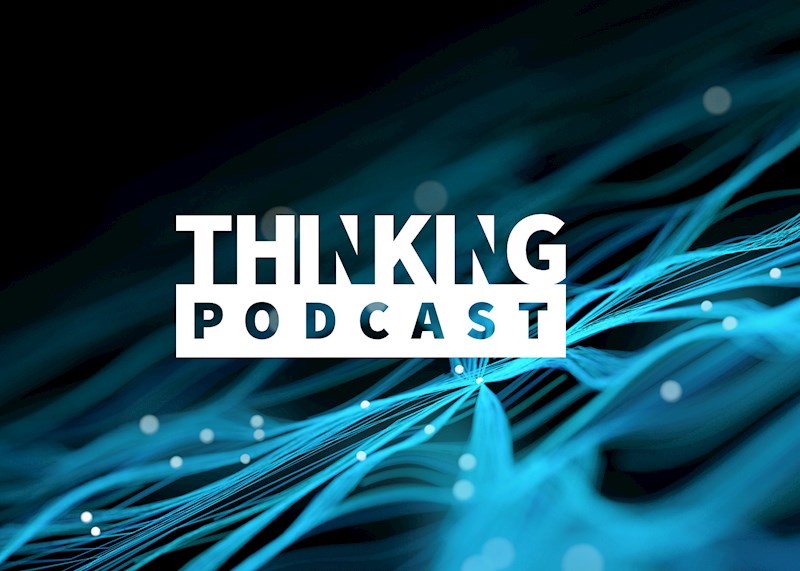While artificial intelligence (AI) and generative (gen) AI has been around for decades, it’s recently come into the spotlight due to the increased ways it integrates with companies and individuals alike. With the advent of gen AI’s ability to create new content, technology is moving more and more to the consumer’s forefront. There’s been a shift in the mainstream focus with more attention toward the gen AI value chain, including everything from the data infrastructure that supports AI models to the applications it can create. Businesses are now embracing AI and gen AI more enthusiastically than ever, especially in their operational contexts.
Equity Analysts Sharon Zackfia, Margaret Kaczor Andrew, Sami Corwin, and Maggie Nolan explore the dynamic subject of AI and its broad implications across the consumer, healthcare, and technology sectors. Leveraging their expertise within their sectors, they provide a thorough analysis of the benefits and risks associated with AI, including the anticipated developments and overall risks associated with the new technology.
Hyper-Personalizing for Consumers’ Needs
Based on her deep knowledge of the consumer landscape, Sharon Zackfia, CFA, partner and group head, sees AI as a major way for companies to focus on creating and amplifying personalized connections with consumers to enhance brand engagement.
Zackfia explained how AI and large language models can facilitate the research process for consumers, particularly before making considered, large-ticket purchases. For instance, gen AI can summarize thousands of user reviews to create something concise and actionable for consumers, while often answering key questions about items they want to purchase.
“A lot of consumer research happens on the internet,” Zackfia said. “It lends itself more easily to AI functionality. The higher a company’s digital or e-commerce mix, the greater the potential impact of consumer-facing AI.
“Optimizing messaging and content to drive frequency—and purchase—via more personalization is a key focal point for consumer companies. Brands can also incentivize consumers to engage digitally and enter a brand’s ecosystem through loyalty programs, with limited time offers, and with early editions of product launches or special offerings.”

While AI presents opportunities for companies to enhance their relationship with customers, Zackfia noted much of the evolution of the use of AI will likely be behind the scenes for the foreseeable future in areas such as design and marketing, pricing, and inventory management.
“AI can inform design and potentially shorten product lead times while also creating improved real-time pricing models,” Zackfia said. “The latter could be particularly impactful in areas we follow, such as used car pricing or cruise yield optimization. AI can also further improve inventory management while optimizing availability across channels and markets, which could bolster sales while lessening markdown risk.”
A Revolution in Next-Generation Medicines
To Margaret Kaczor Andrew, CFA, partner, covering medical technology companies, AI and healthcare come together to bring real-time monitoring and dynamic software processes to patients, creating more unique treatments for patients.
Recent deep neural networks, or algorithms aimed to mimic the brain’s information processing networks, can run 34 layers deep. Kaczor Andrew explained how a recent sensor-based platform specific to patients can increase the diagnosis rate of arrhythmia, or abnormal heartbeats, from approximately 50% to 99% for different types of arrhythmias.
“Traditionally,” Kaczor Andrew said, “this wouldn’t have been done before AI because there was no software process in place. No human can go through 1.6 million heartbeats over a 14-day period to recognize specific points that may have arrhythmias.”

Similarly, Sami Corwin, Ph.D., explained how the biotechnology industry has been innately connected with AI and machine learning for some time now. Integral in the drug discovery process and evaluation of drugs, biotech companies are aided by AI in narrowing down specific drug developments. Additionally, AI may allow patients to enter clinical trials more easily.
“AI may enable the treating physicians to more readily see which clinical trial is a better fit for their patient and which trial is accepting patients,” Corwin said. “This could allow patients to be more rapidly treated with experimental therapies to have a greater therapeutic benefit, based on their underlying diagnosis.”

Kaczor Andrew also noted the impact AI has in identifying potential patients earlier in disease cycles. Most patients seek healthcare when they feel some sort of symptoms—it’s rare for someone to be asymptomatic and find treatment proactively. She argued the extent to which physicians find arrhythmia or diabetes earlier may help stop the progression of severe diseases.
“There’s 100 million prediabetics in the U.S.,” Kaczor Andrew said. “We only know where 15% of those individuals are, and the other 85% are unidentified. If we could keep those patients as prediabetics or even treat them earlier, maybe they never need to go toward insulin use.”
Looking ahead, both analysts believe consumer-driven healthcare and biotechnology may continue to develop in parallel.
“Going forward,” Corwin said, “I see a potential revolution in next-generation medicines that will be enabled by AI. As AI advances, it will allow healthcare to advance, facilitating the development of more therapies to treat more patients.”
Being Cost-Effective and Intelligent
Maggie Nolan, CPA, partner, covering IT services companies, sees the unique ways the technology industry has been dealing with AI, both internally and externally with developing strategies for their clients.
“For IT services companies,” Nolan said, “they’re using AI to help with automation of certain tasks, like testing, quality assurance, and code generation. Within the customer service world, there’s a lot of use there to optimize support functions with chatbots, for instance.”
Although concerns about balancing regulatory restrictions and cutting-edge AI developments have continued to crop up, Nolan explained more and more steps have been taken to ensure responsible AI developments and application rollout.

“There's a lot of debate around and evolution of regulation,” Nolan said. “Different professional organizations, like the Trust & Safety Professional Association, are supporting the global community of professionals who develop and enforce principles and policies that define acceptable behavior and content online. Copyright law, data privacy, and security will continue to be a topic of conversation.”
When asked about the potential of AI within the tech industry, Nolan was optimistic while understanding companies need strong data infrastructure and strategy to leverage these new tools. To her, it’s about correctly accomplishing preliminary work surrounding data processes so companies can accelerate new developments effectively.
“A technology company I cover recently asserted only 10% of companies industrywide have mature data and AI foundations,” Nolan said. “There’s still some foundational things that need to happen internally, but working on platforms, being intentional with AI, and understanding where your workloads are will help optimize AI and use it in a cost-effective and intelligent way.”



